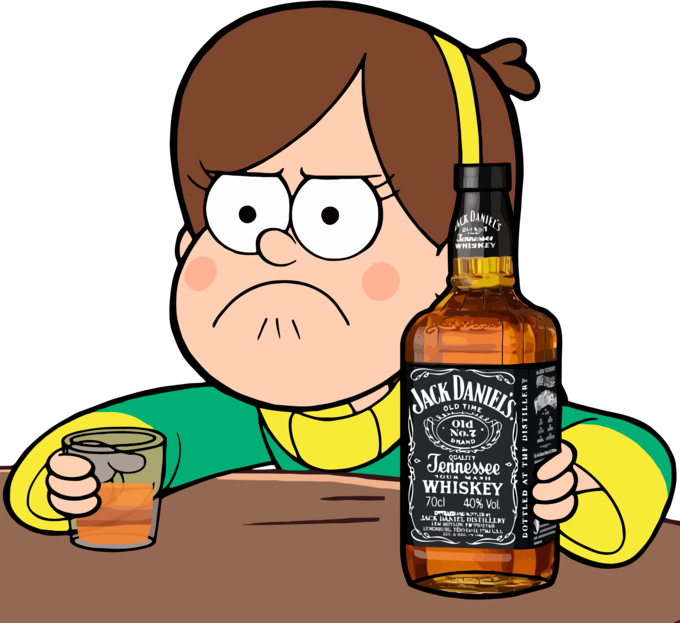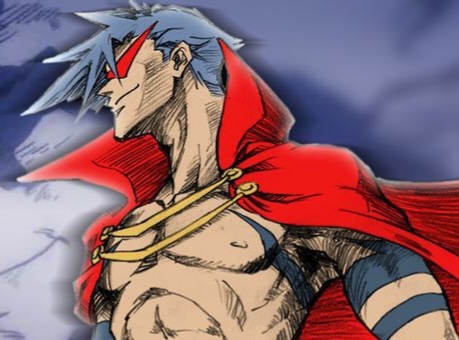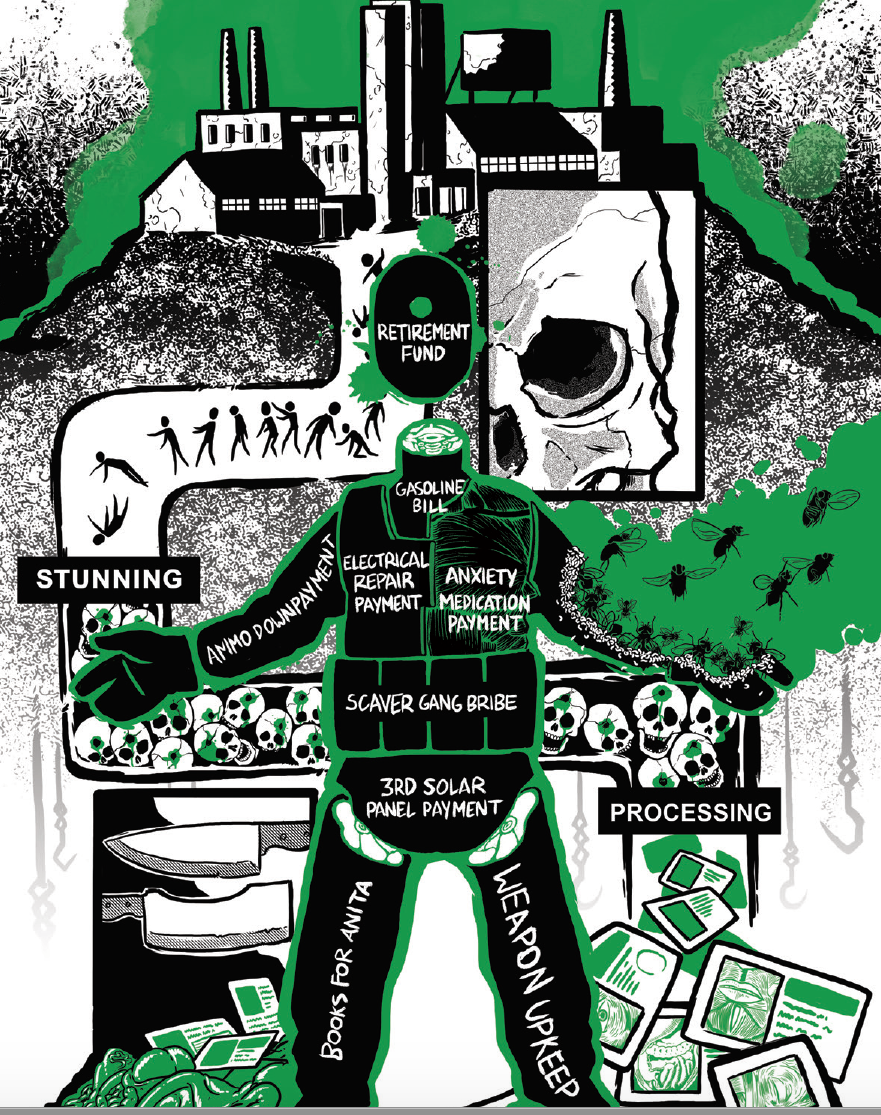American Psycho is excellent though, if someone walks out of that film thinking Bateman is a cool guy then there's probably not much hope for them
I don't think people who watch the Wolf of Wall Street and want to be Jordan Belfort are missing the point of the movie. Maybe Scorsese thinks otherwise, but the film he actually made is one of the greatest ever aspirational capitalist fantasies. To blame the audience for his purported message getting "misinterpreted" is a cowardly dodging of responsibility.
As depicted, Jordan Belfort's life is pretty fucking awesome. He is unimaginably wealthy, is deified by his underlings, has a hot wife, and can do virtually anything he wants. The movie almost ends with a brief scene of Jordan going to prison and seemingly suffering some consequences for his action, but then shows that his sentence was a lavish life at Club Fed and he went right back to being a rich and worship capitalist after getting out. Sure his wife hated him and he had a huge drug problem, but those problems are hardly enough to even the scales against the total male power fantasy that his life is shown to be.
Much like you can't make a truly anti-war movie if its protagonists are a bunch of macho army men instead of war's civilian victims (ie: Come and See), you can't make an anti-capitalist movie if its heroes are the rich and powerful instead of those they impoverish and oppress.
True. Just look at all of the character images in the screenshot above. See all of those classic low angles giving a sense of power and confidence to these characters. The camerawork in most of these films is constantly fawning over these villainous characters. Yes there's a critical subtext in there that hopefully most people can see, but it's buried underneath thick layers of power fantasies and flattering aesthetics. It's no wonder that so many average young teenagers who want to be cool get distracted and miss the critique hiding beneath it all, particularly when media literacy is so poorly taught in schools because it's not STEM.
That's why the computer game This War of Mine was so important, even if it was utterly miserable to play.
The movie almost ends with a brief scene of Jordan going to prison and seemingly suffering some consequences for his action, but then shows that his sentence was a lavish life at Club Fed and he went right back to being a rich and worship capitalist after getting out
This was 100% intentional because near the end of the movie there's a shot of the FBI Agent who got him riding home on a run-down bus and looking kind of miserable. Like, Bellfort ultimately is still living a great life while this agent who won isn't doing too great.
I always say that the mistake filmmakers make is that they don't want to make their character truly cringe. You've got to have the Fight Club guy go into his room and the walls are covered with underage anime characters and he wanks himself to sleep while clutching a body pillow and dirty talking to it.
Can't make it that cringe otherwise folks won't watch it at all.
The Sopranos hits a nice balance, probably as good as you can get without a much more critical audience.
Can’t make it that cringe otherwise folks won’t watch it at all.
Given the size of Chris-Chan's audience, idk.
I can see how anyone could walk out of Fight Club or WOFS believing Durden and Bellfort are cool and they should be like them, but the people idolising Bateman are so funny. He is literally such a loser!
Hmmm today I will idolize a sociopath killer in American Psycho.
[misses point of the film like a boss]
More proof they are fucking idiots. I still remember during the occupy wall street protests they'd laugh at and spit on protesters. No moral compass
That shit is even funnier when you know what a piece of shit Bale is
:wonder-who-thats-for:
I know someone who's absolutely like this.
They work with Bari Weiss or however it's spelled.
The end of the movie where it turns out that he never even killed anyone just means he's even cooler than I thought :so-true:
Fight Club gets very close to chronicling a proletarian revolution tbh
if someone walks out of that film thinking Bateman is a cool guy then there’s probably not much hope for them
This is true.
But I'm also willing to admit this used to be me, back when I was 17. I was a clueless, sheltered, misanthropic spoiled white boy from the suburbs, and I was trying on any/every male archetype I could find, like a series of costumes, desperately trying to find one that fit, to feel like a man.
I emulated Ron Swanson too, and Dr. House, and probably some other awful male characters that men use to fantasize about being awful and getting praised for it.
Luckily I got over it, grew some humility, rediscovered my sense of empathy, had a year-long existential crisis, a bit of ego death ... and now I'm a Marxist woman. :trans-uno:
I guess I should just be grateful that I wasn't born into a wealthy family. Getting my first warehouse job woke me the fuck up.
House was the opposite of "getting praised" for it though. Everyone around him hate him and basically just tolerates him. The one woman he loved abandoned his marriage and he lived in constant physical pain.
I still like the House show, the character had some problems but I can't imagine overall someone unironically wanting to switch places with a guy that is constantly shown to be living in physical and mental misery. He literaly only had one friend his entire life. Yeah he is probably living well off being a doctor and all but nobody in that universe is "praising" House.
IMO the whole atheism thing was more a matter of the timing, these days nobody would give a shit he is atheist. Yeah I get the appeal of being told it is ok to be a jerk to religious people, but again this is what 2005 teenagers wanted to hear and it was relevant like maybe half a dozen times over the entire series.
nobody in that universe is “praising” House.
They routinely praise his accomplishments and his genius. His patients regularly praise him, to the point of dancing and crying.
That's what keeps him coming back (and gainfully employed besides) to the job. That's what makes him a figure of fixation. The tortured genius who everyone is periodically forced to admit is better than them.
Praising his work as a doctor doesn't mean "praising him" for his personality which is I think is what they meant.
Of course patients would praise their doctors after they save their life. They will only ever deal with him once for a few days. But as I said everyone else in the show either just tolerates him or hates him. His only friend constantly berates him and openly says he is an asshole.
The tortured genius who everyone is periodically forced to admit is better than them.
Yes Lisa says multiple times he is good for the hospital and that is why she kept him, literally the only reason. If someone thinks being tolerated at their job and at risk of falling out of grace as soon as you are no longer "good for the hospital" is inspirational than that is on them. There was a whole arc on him trying(and failing) to rehab from addiction too, was that inspirational?
I maintain that with regards to media literacy, if they can't see how fickle and miserable his existence was then that is their fault.
But as I said everyone else in the show either just tolerates him or hates him.
And yet the show commands a large audience for years on end. So he's only "insufferable" in a comedic or dramatic sense. The character reactions are in relief and there to distinguish him as exemplary. They can't operate as objectively and brilliantly as House, so they burn out dealing with him for petty emotional reasons. Meanwhile, the viewers stick with him season after season because only the audience truly understands his tortured genius.
If someone thinks being tolerated at their job and at risk of falling out of grace as soon as you are no longer “good for the hospital” is inspirational than that is on them.
Its inspirational in the same way a child swearing that they're going to run away or die, and then everyone will be sorry that he's gone is inspirational inside their own heads. So, more self-pitying and self-aggrandizing. But yes, it absolutely fuels the delusions of grandeur that people idolizing the character have of themselves. "House is just like me! A brilliant man surrounded by people too stupid to realize how desperately they need us!"
There was a whole arc on him trying(and failing) to rehab from addiction too, was that inspirational?
It was more about the high drama interspersed with disability comedy than rehabbing him. And, in the end, he's back to work doing his genius thing. Turns out he didn't really need rehab after all, just like he always said.
I maintain that with regards to media literacy, if they can’t see how fickle and miserable his existence was then that is their fault.
I don't think the audience is blind to his misery. I think they sympathize with his misery because they are also miserable. And they conflate their misery with genius. "He's miserable because his intelligence has alienated his peers. So if I've alienated myself from my peers, then ipso facto... :very-intelligent: !"
I've been thinking a lot of modern film is intentionally done this way so that it can be liked by both sides of the cultural divide (including a lot of stuff many of us enjoy).
It was already done for them by the toy marketers in the decades prior.
E) Funny, now that I think about it I had a flatbrim hat that was 50% Empire 50% rebel iconography on it. Literally the star wars radical centrism hat lol.
Actually Star Wars is one of the IPs I was thinking about. Nowhere in Star Wars film has there ever been a serious critique of the underlying economic system of the Empire. It's always been this nebulous corruption, bureaucracy, and authoritarianism which are bad things, but without the economic critique, chuds of all stripes could easily read the heroes as themselves. Something like the prison arc in Andor maybe gets close, but even that doesn't really critique economic relations, only political ones.
Nowhere in Star Wars film has there ever been a serious critique of the underlying economic system of the Empire.
Both "Phantom Menace" and "The Last Jedi" imply the nature of the Republic/Empire as one of rapacious merchantilism. "New Hope" describes Tatooine as a frontier colony and trading outpost between Hutt Space and the Core Worlds. "Empire Strikes Back" also implies Bespin is a frontier colony profiting from resource extraction.
The focus of the films tends to be the ongoing civil war and associated military campaigns. But you can regularly see the edges of an economic picture - one of space faring civilizations spreading out into a galactic frontier in pursuit of new resources to mine for the benefit of the Core Worlds.
They could have and it likely would have been a better movie.
Andor does a great job of making the imperials sympathetic and human. It does a great job of making some rebels selfish and others overzealous.
The conflict is more sincere when the characters all seem grounded, rather than naively righteous or comically sadistic.
I think there's layers.
The underlying story is a piece of literature. Then you've got the screenplay, the set design, and the special effects. Then you've got the actors with their own personalities attached to the project. Then there's the promo material that sells the film as a product.
As you move farther and farther from the original work, the more messaging drifts. At the end of the day, the goal is to draw people in to see the movie. But this isn't a singular vision. It's a composite of interpretations and expressions.
What makes it popular is the broad appeal. But plenty of movies are engineered to have broad appeal and end up appealing to nobody.
Drive is such a good movie and definitely my favorite in the genre, but yeah I can see how if you fuck up reading American Psycho you'd easily fuck up on that one too.
Looking at the back and forth on this has me 100% convinced that it is not on the author to get across that it is satire at all because you can put fucking spotlights and sparklers on it and the director can freeze-frame it to explain exactly what is happening and that it is satirical and some people will still not fucking get it.
Case in point: contemporary reviews of Starship Troopers written by professional film critics
Again them saying it's satire when it obviously isn't is kind of the exact opposite of the issue I addressed
That's kind of what I was getting at. The nature of media is such that it's impossible for 100% of the author's intended message to reach 100% of the intended audience, so splitting hairs over signaling isn't very productive. Some people saw the hundreds of thousands killed by Arachnids as acceptable losses and Doogy Howzer showing up in an SS uniform to take the Brain Bug off for Mengele experiments and thought "wow this is so cool literally me :so-true: "
If satire is well-crafted, it will get the point across appropriately. If it doesn't then that's not some severe moral failing. It's more shitty writing than anything else, and piss-poor communication.
Million Dollar Extreme is :walking-dead:
Alex Jones may? be toast.
Fox News :inshallah-script:
some people will still not fucking get it
At some level, its entirely deliberate. The "not getting it" folks fixate on the fantastic element of the film and deliberately neglect or ignore the consequences of indulgence in fantasy.
This isn't an accident, its a conscious decision to propagandize certain angles of the film.
And it isn't as though movies don't exist that are even more explicit and bald faced and nakedly critical. But you're not going to see a bunch of dude-bros :soypoint-1: over Revolutionary Road or Marriage Story.
Again, anything that doesn't endorse their narrative is either derided or excluded in the conversation.
I'd say, generously, that half of these characterizations are about male insecurity.
American Psycho/WoWS aren't about male insecurity, but about gleeful and unchallenged psychopathy of the financier class
Drive isn't really about much but about being cool, but FWIW the director described the principal character as a manifestation of God (I know, death of the author and all, but if there's another good interpretation you gotta make the argument first)
If I'm being more critical I'd say insecurity doesn't really describe Travis Bickle or Arthur Fleck either, unless we're talking about a broader sense of being abandoned by society
Of course drive had a point.
"There's no good sharks?"
Scorpion and the frog. Dude literally wearing a scorpion on his back.
I keep mentally confusing Drive (Ryan Gossling beats people to a pulp), with Baby Driver (earbud kid who drives very well) and Drive Angry (Nick Cage comes back from the dead to kill a cult leader who murdered his daughter)
I'd also argue that Heath Ledger's Joker was supposed to be at least somewhat of a leftist but filtered through the lense of Nolan's deranged conservative worldview
Think about it, the only reason Bane was the villain of the 3rd movie was because Ledger died and had he not then the Joker would have been the one having capitalists dragged from their luxury apartments into the streets and having Wall Street scumbags tried for their crimes against the people
Even in the Dark Knight the case could be made that what the Joker meant when he vaguely said that no one cares about people dying so long as it's "part of the plan" was meant both as a criticism of how many people die of poverty within :amerikkka: as well as this country's genocidal foreign policy
Of course that didn't stop moron incels from thinking it was just cool to shoot up movie theaters
:joker-che:
Joker is the result of revolutionary potential without revolutionary theory.
Damn, I never thought of it like that - do some women actually idolize the gone girl?












